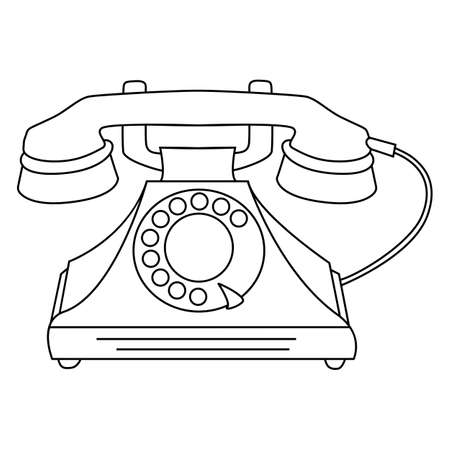Introduction to Night Fishing Communication
If you’ve ever found yourself casting lines under the stars along Britain’s winding rivers or rugged coastal marks, you’ll know there’s a certain magic to night fishing. But while the peaceful hush and gentle lapping of water make for a perfect escape, staying connected with your angling mates is absolutely key. Whether it’s for swapping stories about the one that got away, alerting friends to a cracking bite, or—most importantly—ensuring everyone’s safety in the dark, effective communication is at the heart of any successful night session. With unpredictable British weather and often remote locations, having reliable ways to keep in touch isn’t just handy—it’s essential. In this guide, we’ll chat about the best tools for keeping connected after sundown, from trusty radios and mobile phones to clever tips for sharing those triumphant catch photos with your fellow anglers. So grab your flask and settle in as we explore how good comms can make all the difference on your next night by the water.
2. Choosing the Right Communication Tools: Radios vs. Phones
If you’ve ever spent a breezy night by a British lake or river, you’ll know that staying in touch isn’t just about convenience—it’s about safety and making your angling trip more enjoyable. When it comes to communication during night fishing sessions here in the UK, the debate between using radios and mobile phones is a lively one. Let’s weigh up both options, consider their pros and cons, and see which suits different scenarios best—especially with our unique British quirks like patchy network coverage and a fondness for classic kit.
Radios: The Sturdy Old-Faithful
Two-way radios, especially the trusty walkie-talkies many of us have had since childhood, remain a firm favourite on the bank. They’re reliable, don’t need mobile signal, and offer instant group communication—a big plus if you’re spread out across pegs or along a dark stretch of canal. Radios are also less fiddly with cold fingers, and battery life typically lasts much longer than most smartphones.
Mobile Phones: Modern Versatility
Phones bring versatility to the table. With apps, GPS, emergency calls, and even weather updates at your fingertips, they’re hard to beat for all-in-one functionality. However, as every British angler knows, there are plenty of remote spots where the signal is as elusive as a crafty barbel—so relying solely on your phone can sometimes backfire.
Handy Comparison Table: Radios vs. Phones for Night Fishing
| Feature | Radios | Mobile Phones |
|---|---|---|
| Signal Reliability (Rural Areas) | Consistent (no reliance on phone networks) | Dependent on coverage; often patchy in remote areas |
| Battery Life | Long-lasting (often days) | Limited (hours to a day; can drain quickly in cold) |
| Group Communication | Instant & easy (push-to-talk for multiple people) | Difficult (conference calls or group chats required) |
| Emergency Use | Limited (unless monitored channels available) | Direct 999 calls possible if signal exists |
| Features/Apps | Basic (voice only) | Advanced (maps, weather, social media etc.) |
| Toughness/Weather Resistance | Generally robust & weatherproof models common | Vulnerable unless rugged case used |
| Cultural Familiarity (UK Anglers) | Loved by traditionalists; many clubs use them | Younger anglers prefer; everyone has one anyway! |
The British Angle: Local Habits & Coverage Quirks
It’s no secret that rural Britain is dotted with mobile blackspots—even within an hour of London! Many local anglers swear by radios for this reason alone. At the same time, most of us wouldn’t dream of leaving our mobiles behind either—if only for those classic sunrise snaps or checking in with family over a cuppa. The best advice? Take both if you can: radios for reliable chatter with your mates on-site, and phones for emergencies or when you’re lucky enough to catch a good signal.

3. Setting Up Your Gear for British Conditions
When it comes to night fishing in the UK, our famously unpredictable weather can quickly turn a calm evening into a soggy ordeal. Choosing the right communication gear is crucial—not just for convenience, but for safety too. Here are a few practical tips for making sure your radios and phones stay reliable, even when the drizzle sets in.
Weatherproofing Is Essential
Look out for devices with high IP (Ingress Protection) ratings—IP67 or above is ideal for keeping out both rain and the occasional splash from an enthusiastic fish. Many British anglers swear by waterproof cases or dry bags, especially when you’re trekking along muddy riverbanks or setting up on exposed lakesides.
Keeping Devices Powered Up
Nothing ruins a session like a dead battery when you need to check in with your mate or call home. Pack a couple of power banks, and choose ones that are themselves water-resistant if possible. A handy tip: keep your charging cables and spare batteries tucked away in sealable sandwich bags—simple, but highly effective against that classic British mist.
British Quirks: The Tea Flask Factor
No British fishing session is complete without a trusty flask of tea. But remember, electronics and hot drinks don’t mix! Make a habit of keeping your comms kit well away from your mug—nothing ends a night’s fishing banter faster than dunking your phone instead of your biscuit. A little organisation goes a long way, so set up a ‘dry zone’ in your bivvy just for gadgets.
Ultimately, staying connected while night fishing across the UK means preparing for all four seasons in one evening. With the right gear and a touch of good old British common sense, you’ll be able to enjoy the banter, share those catches—and maybe even call home to brag—without any hitches.
4. Radio Etiquette and Handy Phrases for Anglers
When you’re night fishing on a British lake or river, clear radio communication is more than a convenience—it’s part of the angling camaraderie! Using simple radio protocols, friendly lingo, and a dash of classic British politeness keeps everyone in good spirits and on the same page. Whether you’re checking in with your mate across the swim or calling for a net, knowing what to say (and how to say it) can make your night fishing session run like clockwork.
Simple Radio Protocols
First things first: keep transmissions short and sweet. Use “over” to signal you’ve finished speaking and “out” when you’re done with the conversation. Always wait a second before speaking after pressing the talk button—this avoids cutting off the start of your message. And remember, don’t hog the airwaves; give everyone a chance to chip in!
Classic British Banter and Polite Phrases
Anglers in Britain love their banter, but there’s always room for a bit of classic courtesy. Here’s a handy table with some common radio phrases and their meanings, inspired by real-life chatter on UK waters:
| Phrase | Meaning / Usage |
|---|---|
| “Copy that, mate!” | I’ve received and understood your message. |
| “Any joy over there?” | Have you caught anything yet? |
| “Going quiet for a brew.” | I’ll be off radio while I make tea/coffee. |
| “Need a hand with the net, pal?” | Do you need help landing a fish? |
| “Just had a knock!” | I think I had a bite on my line. |
| “Cheers for that!” | Thanks (always appreciated on the bank). |
| “All clear this end.” | No problems or issues here. |
| “Watch your step by peg five.” | A polite warning about slippery or tricky ground near a specific spot. |
| “Rod’s bent double here!” | I’m hooked into a big fish! |
| “Over and out.” | The conversation is finished. |
Tone Matters: Friendly, Clear, and Respectful
No one likes a grumpy angler on the radio! Keep your tone upbeat—even if your lines are quiet—and avoid shouting or mumbling. If someone’s message isn’t clear, just ask them politely to repeat it (“Come again, mate?” does the trick). Remember, night fishing is as much about enjoying each other’s company as it is about catching whoppers.
The Takeaway
Mastering radio etiquette with a sprinkle of British charm not only keeps communication running smoothly but also adds to the enjoyment of those long nights by the water. Next time you’re out with friends or fellow club members, try out these phrases—you’ll sound like an old hand in no time!
5. Staying Connected in Remote or Rural Spots
If you’ve ever spent a night fishing on a secluded stretch of the River Wye or found yourself deep in the wilds of the Scottish Highlands, you’ll know that mobile signal can be as elusive as a record-breaking carp. British countryside is renowned for its beauty—and its patchy reception. But don’t let dodgy signal put you off; there are plenty of practical tricks to help you stay in touch when you’re tucked away from civilisation.
Scout Out the Strongest Signal Spots
Before settling into your bivvy, it’s wise to wander around with your phone raised—yes, we all do it!—to pinpoint where the signal bars peak. Mark these spots so you know where to head if you need to make a call or send a quick message back home.
Use Wi-Fi Calling and Offline Messaging Apps
Many rural pubs and even some fisheries offer Wi-Fi, so enabling Wi-Fi calling on your smartphone can be a real lifeline. It’s also worth installing messaging apps like WhatsApp or Signal, which often deliver texts even on very low data connections. For absolute peace of mind, apps like Bridgefy allow for Bluetooth-based messaging with mates nearby—no mobile network needed.
Keep Devices Powered Up
There’s nothing worse than finally getting a bar of signal only for your phone to die. Always pack a couple of power banks and keep devices charged. Solar chargers are brilliant if you’re planning a long session off-grid.
Radios as Reliable Backups
If you’re part of a group spread along the bank, two-way radios (walkie-talkies) are still king when mobiles fail. They work well over reasonable distances and don’t rely on any infrastructure—plus, they add an old-school charm to your night out.
Share Your Whereabouts
Finally, always let someone know exactly where you’ll be fishing and when you plan to return. Even just dropping a pin before losing signal can be invaluable if anyone needs to check in on you. In Britain’s more remote corners, these small steps really do make a difference.
6. Emergency Situations: Best Practices and Key Contacts
Night fishing in the UK can be a tranquil escape, but being prepared for emergencies is just as important as having the right tackle. Safety should always come first, especially when youre out after dark and potentially far from help. Heres how to make sure youre ready if things take a turn for the worse.
Stay Calm and Assess the Situation
If an emergency arises, staying calm is crucial. Whether it’s a medical issue, sudden bad weather, or an unexpected encounter with wildlife, take a moment to assess what’s happening and decide on your next steps. Panicking rarely helps—think clearly about what needs to be done and use your communication tools wisely.
Who to Contact in an Emergency
For life-threatening situations, don’t hesitate: dial 999 for emergency services. In less urgent cases—such as getting lost or minor injuries—the NHS non-emergency number 111 can offer guidance. If you’re fishing on private land or club waters, keep the bailiff’s or fishery manager’s number handy too; they’re often close by and know the area well.
The Role of Radios and Phones
Your mobile phone is your lifeline, but signal can be patchy in remote spots. Always let someone know where you’ll be fishing and how long you plan to stay. Two-way radios are useful for keeping in touch with mates if you’re angling as a group—they don’t rely on mobile signal and can be a real asset during emergencies.
The Importance of Sharing Your Location
Before heading out, share your planned location (using apps like What3Words or simply dropping a pin on Google Maps) with a family member or friend. This makes it much easier for emergency services to reach you quickly if needed. Many UK anglers now consider this standard practice—it’s a small step that can make all the difference.
Practical Safety Tips
Pack a basic first aid kit and keep it accessible in your bivvy or tackle bag. Bring extra batteries or power banks for your devices, and check local weather updates before setting off. Reflective tape on clothing or gear also helps rescuers spot you more easily at night.
By planning ahead and knowing who to contact, you’ll have peace of mind to enjoy those long nights by the water—and ensure that help is never far away should you need it.
7. Wrap-up: Sharing Your Nighttime Stories and Keeping in Touch
After a long night on the bank, there’s nothing quite like reliving those magical moments with your fishing mates—whether that’s over a cuppa at sunrise or online once you’re home and thawed out. These days, staying connected goes well beyond shouting across the lake or waving your torch about. With smartphones, group chats, and dedicated angling forums, it’s never been easier to swap stories, show off your catch (or that near miss), and pass on those hard-earned tips to fellow anglers all across the UK.
British fishing is as much about camaraderie as it is about landing that perfect carp or tench. Don’t be shy about snapping a few photos of your set-up or recording that bit of drama when you finally landed your prize. Share them on your local club’s WhatsApp group or post them to one of the many Facebook angling communities—it’s a great way to keep the banter going long after pack-up. You’ll find plenty of friendly advice, gentle ribbing, and maybe even a few secret swim recommendations if you’re lucky!
Whether you’re new to night fishing or a seasoned old hand, making use of digital platforms keeps our angling traditions alive and kicking. By sharing experiences—good and bad—you help build up the community spirit that makes British fishing so unique. So next time you’re out for an overnight session, remember: keep those radios charged, phones at the ready, and don’t forget to share your adventures when you get back. Tight lines, and see you bankside!

